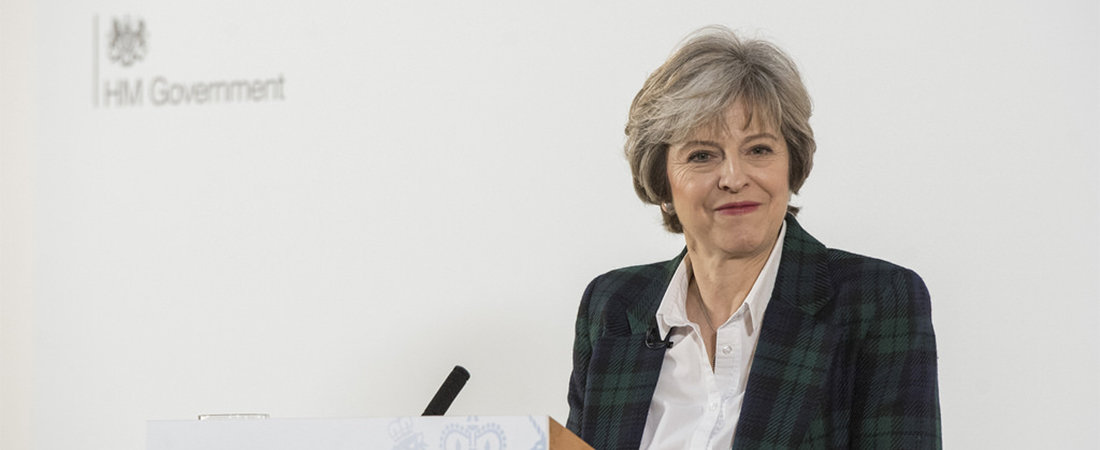In a short, unscheduled statement outside Downing Street, Theresa May outlined a clear rationale for holding an early election: the country may be coming together over Brexit but Westminster politicians remain stubbornly divided, against the national interest. The only way to “secure the strong and stable leadership the UK needs” as it leaves the EU is to ensure opposition parties cannot disrupt the Brexit agenda, she argued.
The Prime Minister is right to be concerned, the Government has made a verbal promise to MPs that they will have a vote on the final Brexit deal and before that there will be numerous votes in the Commons as part of the Great Repeal Bill process. Timing is tight and the Government’s current working majority of 17 leaves them vulnerable.
As many have pointed out, this decision contradicts repeated assurances from the Prime Minister and her team that there will be no general election until 2020. But May said that she had recently come to the decision that an election is necessary to guarantee stability through Brexit and beyond. Moreover, with the EU unlikely to be ready to begin formal negotiations until after the French elections conclude, the next two months offer a convenient window.
Of course, the Fixed-Term Parliaments Act ensures the Prime Minister cannot unilaterally dissolve Parliament – she needs the support of two-thirds of MPs. Accordingly May issued a “simple challenge” to Jeremy Corbyn and other opposition leaders – tomorrow she will ask for their support as she tables a motion calling for an election. Opposition parties have confirmed that they will support the motion as to refuse would be to admit they are not ready, or cannot win.
As for the process, Number 10 have announced that Parliament will be dissolved just after midnight on May 3, providing the Commons votes in favour tomorrow. The campaign itself will be short and the Conservatives are likely to try to keep debate at the national level, making the vote a contest of leadership between Theresa May and Jeremy Corbyn. They will position this as a choice between stability and chaos.
The latest UK polling puts the Conservatives on 42% vs Labour on 25%. However, there are risks to the Prime Minister’s decision. It’s unlikely that the Tories can make significant gains in Scotland or Wales, and it’s possible that they could lose seats to the Liberal Democrats in the South (although probably not as many as recent private polling suggested). An increased majority can therefore only be delivered with victories in Labour-Conservative marginals.
CCHQ would have done the maths on all these options but converting a national poll lead into more MPs is not as straightforward as it seems.

